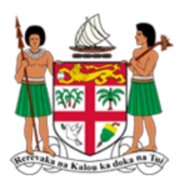Best Education Law Lawyers in Fiji
Share your needs with us, get contacted by law firms.
Free. Takes 2 min.
Or refine your search by selecting a city:
List of the best lawyers in Fiji
About Education Law in Fiji
Education Law in Fiji encompasses a range of legal issues related to the nation's educational system. It covers areas such as student rights and responsibilities, the framework for educational governance, teacher-student relationships, special education services, and school safety regulations. This body of law ensures that educational institutions operate within the legal parameters set by the Fijian government, ensuring equitable access to quality education for all citizens. Education Law in Fiji is influenced by statutory laws, case law, and administrative regulations, all crafted to support the educational objectives of the nation.
Why You May Need a Lawyer
Individuals might seek legal advice in Education Law for various reasons, including disputes related to school admissions, special education services, discrimination in schools, or issues concerning educational malpractice. Additionally, educational institutions may require legal counsel to navigate compliance with national educational standards, labor concerns, or policy development and implementation. Legal representation can be crucial in protecting one's rights and interests when conflicts arise or when navigating the complexities of educational rules and regulations.
Local Laws Overview
Fiji's Education Law is primarily guided by the Education Act, alongside various policies and regulations set by the Ministry of Education. Key aspects include ensuring equal access to education, maintaining standards for teacher qualifications, regulating school curriculums, and implementing mechanisms for addressing grievances. The law also establishes the responsibility of schools to provide a safe learning environment and recognizes the rights of students and teachers alike. Recent amendments have focused on inclusivity, ensuring that provisions for special needs education are adequately addressed.
Frequently Asked Questions
What is the role of the Ministry of Education in Fiji?
The Ministry of Education in Fiji is responsible for formulating educational policies, overseeing their implementation, monitoring and evaluating school performance, and ensuring adherence to educational laws and standards across all educational institutions in the country.
What legal rights do students have in Fiji?
Students in Fiji have the right to receive education in a safe and non-discriminatory environment. They are entitled to fair treatment by teachers and staff and can voice complaints regarding any grievances they might encounter within the educational system.
How does Education Law address special education needs?
Fiji’s Education Law mandates that all children, including those with disabilities, have access to education. Schools are required to provide reasonable accommodations to support special educational needs, and there are government initiatives to enhance inclusivity in the educational system.
What constitutes educational malpractice in Fiji?
Educational malpractice involves the failure of an educational institution to provide students with the agreed standard of instruction. Examples include failure to follow curriculum guidelines, inadequate faculty qualifications, or neglecting student support services.
Can parents choose any school for their children in Fiji?
While parents can choose from various educational options, enrollment policies and district zones may limit some choices. It's crucial to understand each school's admission policies and any zoning laws that may apply.
How are disputes with schools typically resolved?
Disputes are often initially addressed through internal school procedures. However, unresolved issues may require intervention by legal professionals or be taken to formal tribunals or courts depending on their nature and complexity.
Are teachers protected under Education Law in Fiji?
Yes, teachers in Fiji are protected by employment laws and educational provisions that ensure fair treatment, provide rights to fair procedures in disciplinary actions, and protect against unfair dismissal or unfair labor practices.
What are the implications of violating education laws?
Violations can result in a range of consequences including fines, administrative sanctions, revocation of teaching licenses, or litigation. Educational institutions could face penalties or even closure if found non-compliant with regulatory standards.
How is school safety regulated?
School safety in Fiji is regulated through policies that mandate safe infrastructure, emergency preparedness, anti-bullying initiatives, and the reporting and handling of incidents. These regulations ensure a secure environment conducive to learning.
What is the process for implementing new education policies in Fiji?
The implementation of new education policies involves consultation with stakeholders, drafting proposed changes, seeking approvals from relevant authorities, and the actual rollout in schools with regular monitoring and evaluations to assess effectiveness.
Additional Resources
The following resources can provide further guidance regarding Education Law in Fiji:
- The Fiji Ministry of Education: They offer comprehensive information on policies, regulations, and educational initiatives.
- The Fiji Human Rights and Anti-Discrimination Commission: Offers resources on rights protection within educational settings.
- Legal Aid Commission of Fiji: Provides access to legal assistance for qualifying individuals.
Next Steps
If you require legal assistance in the field of Education Law in Fiji, you should first consult with a lawyer who specializes in this area. This consultation can help clarify your rights and guide you through legal processes or negotiations. Consider contacting the Fiji Law Society for referrals or visiting the Legal Aid Commission for assistance if you meet their criteria. It's important to gather all relevant documentation and evidence related to your case to ensure that your lawyer can provide the most informed advice.
Lawzana helps you find the best lawyers and law firms in Fiji through a curated and pre-screened list of qualified legal professionals. Our platform offers rankings and detailed profiles of attorneys and law firms, allowing you to compare based on practice areas, including Education Law, experience, and client feedback.
Each profile includes a description of the firm's areas of practice, client reviews, team members and partners, year of establishment, spoken languages, office locations, contact information, social media presence, and any published articles or resources. Most firms on our platform speak English and are experienced in both local and international legal matters.
Get a quote from top-rated law firms in Fiji — quickly, securely, and without unnecessary hassle.
Disclaimer:
The information provided on this page is for general informational purposes only and does not constitute legal advice. While we strive to ensure the accuracy and relevance of the content, legal information may change over time, and interpretations of the law can vary. You should always consult with a qualified legal professional for advice specific to your situation.
We disclaim all liability for actions taken or not taken based on the content of this page. If you believe any information is incorrect or outdated, please contact us, and we will review and update it where appropriate.
Browse education law law firms by city in Fiji
Refine your search by selecting a city.











